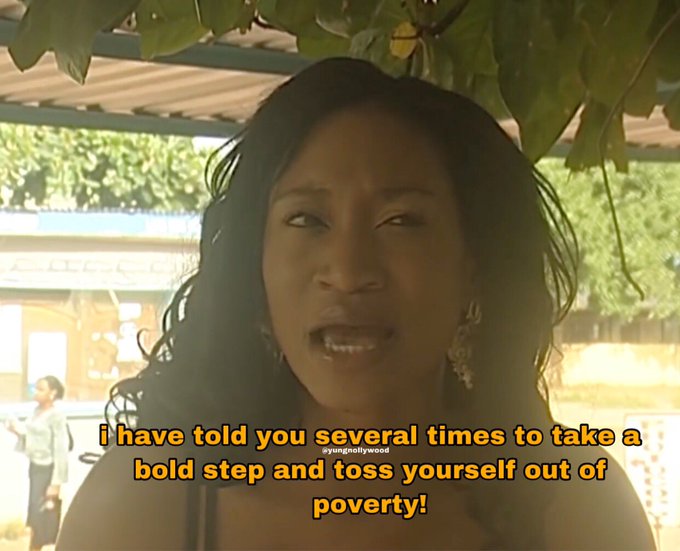
12 || October || 2022
View in BrowserBrought to you by

#Issue 007
Five myths about working in tech
Hi 👋🏾
When I entered the tech industry in 2016, I was very green. My first job as a PR associate was in a tech startup that was still—thankfully—in stealth mode. Stealth mode meant that there was a lot of room for improvement and avoidable errors were ignored or pardoned. I spent my first 90 days doing research on local and global fintech companies. I followed our competitors and kept tabs on their business moves. I learned how to speak to developers and technical engineers; I even learned how to call an API #koromoneofalltrades.
Where am I going with this episode of Tales by Moonlight? My first tech job was not an easy ride. Early-stage startups are notoriously fast-paced and rife with tension and urgency; keep that in mind before you fill out that application form. If you are not mentally prepared to jump on the startup train as soon as its doors open, you might get left behind.
There is no easy job in the market right now. More founders and organisations want to hire fast learners and solution-oriented people. Startups aren’t easy, so don’t go into your first tech job expecting a languid work environment.
In today’s edition, we’re busting a few easy myths about working in tech. Enjoy 👓
by Koromone Koroye & Timi Odueso.

Tech trivia questions
Some trivia before we begin. Answers are at the bottom of this newsletter.
- How many African countries have launched digital currencies?
- How many African countries have banned crypto?

#NoShortcus
Everybody wants to work in tech, but can everybody do what it takes to succeed? 🤔
In last week’s edition, we wrote about the soft skills you need to succeed in any tech job. But you need more than skills to go from newbie to MVP; or maybe the triple-monitor techie with a huge following on Twitter.
This week’s edition is loaded with hard truths about working in tech. Think of them as our unsolicited FAQ guide—our gift to you. Also, we are not doing this just because Timi forgot to interview someone for this edition of #EnteringTech🚀.

Five myths about working in tech
1.“There are easy tech jobs” 🚫
If you’ve ever believed this, then this meme is for you:

There’s no such thing as an “easy” or a “simple” tech job.
Whether it’s UI/UX design, no-code development, backend development, or even technical writing, working in tech involves solving hard problems.
Tech is about innovation and solving hard problems. Can you use websites, apps and services to make people’s lives easier? How can your social media marketing help “bank the unbanked?”
Whether you’re designing a website, writing social media copy or coding APIs, tech involves hard work that can sometimes make you want to tear your hair out.
The only shortcut to wealth is 419 or blood rituals (if you believe in that kind of thing). Not even crypto will bring you quick and easy money.
When we go online, our social feeds are inundated with career wins and milestones like these two ex-Unilag students earning thousands of pounds at Goldman Sachs, or this designer who x23-timed their salary.
And yes, sometimes we want to block them because they’re tensioning us, but most times, we also want to be them. What is it like to x23 your salary within 3 years? When will I work at Google? When will I start earning in dollars?

If you could speak to any of these people, they’d tell you all it takes is time and hard work. Many vocal tech influencers started out with internships, and slowly grew to the roles they have today.
Daniel Abayomi, the product designer who x23 his salary and is now working at Meta, for example, has been designing interfaces since 2018 and he received over 200 rejection letters in 2020.
3. “All you need are courses” 🚫
So you’ve taken all the courses recommended by #EnteringTech🚀, and your LinkedIn page now has some semblance of the phrase “Google/Meta-certified [insert sector] hacker”.
Is that enough to land you a job in tech? No, it’s not enough. You have to do more.
It’s not enough to only have head knowledge; you have to know how to apply theoretical knowledge in real life scenarios on the job. . Can you actually build websites and products? Do you know how to write great copy? Can you use Python, Ruby on Rails or whatever backend language you’re learning efficiently?
You can get ahead by practising some of the things you learn in courses. Build or imitate existing apps, design and websites; create social media campaigns for different sectors; imagine products and create product requirement documents (PRDs) for product launches.
Tech employers are like math teachers; they want you to show your work.

4. “Tech jobs = remote jobs”
Yes, remote work has become the norm for many organisations since the 2020 lockdown, but many employers and workplaces—especially in Africa—are not fully-equipped to handle remote employees.
Not all tech companies offer remote work structures. Before you accept a job offer, you will want to be clear on whether the company supports fully-remote or hybrid work environments.
5. “There are dollar-paying roles waiting for me”
You and me both.😭
This isn’t a complete myth it’s just that you have to work hard before you get to a point where foreign organisations with FX-denominated salaries will invite you to join their teams.

If you’re looking to start getting paid in a foreign currency right after you complete your courses, you may want to rethink your expectations.
More foreign companies are indeed coming to invest in talent on the continent, but they’ll only go for talent with exceptional promise and talent a.k.a people who have track records of success.
The good news is that while you may not get dollar paying jobs right off the bat, there are many companies in your country hiring tech talents and you can start building from there.
These hard truths might have been tough to swallow, but we have to be honest about the realities of working your first tech job.
We’re not trying to dampen your spirits, we’re just making sure you’re not shocked each time you experience these open secrets.
Brace up, working in tech takes time and effort and if you put both in, you’re sure to get something in return.
We’ll end with these wise words from veteran Nollywood actress Oge Okoye:


Here’s where to find your first tech job
If you’re interested in kicking off your career in tech, here’s a list of job boards that regularly upload their platform with African tech jobs.

Ask a techie
Q. I am a broadcast journalist with about 17 years of experience really looking to transition to tech. I am confused about which part of tech will be easier and best for me with my non-science, non-tech background. Kindly advise.
As a journalist, you already have a number of transferable skills you can use well in tech companies. Communications, research and stakeholder management, especially.
What can help you is considering your own interests. Do you like the way websites and apps look? Do you think you can play around with the shapes and colours? Then you may want to consider a career in product design. Are you interested in making sure that projects and tasks are delivered on time and without excuses? Then project management might be the path.
We’d say consider non-coding tech roles like project or product management, development communications, or maybe even a career path in data analysis. Just find out what you’re interested in first, then see if you have the skills to match it.
Q. I had my first degree in Medical Laboratory Science. I have worked in that field for 3 years but I realised that I don’t want to build a career in that. Recently I picked an interest in data analysis and I’m currently taking the Google Data Analysis course on Coursera. I also have the intention to japa to Canada and I want to go there and work as a data analyst. Is it possible for me to take online courses, work on projects (build my portfolio) and be able to land a job in Canada bearing in mind my first degree is not data analysis related?
Anything is possible. But what we know is that it is that international companies that hire from the continent are often looking for experienced tech workers who are already veterans in their field.
You’ll need at least a couple of years of experience working as a data analyst, and notable work on important projects. If your japa-ing to Canada is based on you getting a job as a data analyst first, then it’ll take time and a lot of work before you even start getting offers because you’re still new to the role.
If you already have plans and funding to get to Canada, then it’ll definitely be easier to find entry-level jobs while you’re living in Canada.
That’s all we can take this week. Have any questions about working in tech? Ask away and we’ll find answers for you.👇🏾

Tech trivia answers
- Only four! So far, only Nigeria, Ghana, Tunisia and South Africa have launched or piloted central bank digital currencies. At least nine more including Zimbabwe, Kenya and Uganda have plans to create their own CBDCs though.
- Four African countries—Algeria, Egypt, Morocco, and Tunisia—have banned all forms of crypto trading, while 7 including Nigeria, Cameroon, and Gabon have some forms of prohibition regarding crypto trading.

Opportunities
- Applications for the codeHiveClass of 2023 are now open. Young women from Tanzania, Kenya, Ethiopia, Rwanda and Uganda can apply for the chance to be part of a one-year programme to learn on-demand technology skills. Apply by October 21.
- The Obama Foundation Global Leaders Programme 2023 is open to applications from oung Africans creating positive change in their nations or communities. Selected leaders will be part of a six-month virtual internship programme and join the Obama Foundation network. Apply by October 21.
- Apply to the UN IOM iDiaspora Photo Contest 2022. Amateur and professional photographs can submit photos portraying three central themes and win up to $1,500 in prizes. Apply by November 4.
- AWS She Builds, a community programme with over 25,000 women around the world, is accepting applications for its cohort-based programme which prepares women for Amazon’s AWS Solutions Architect Certification and provides sponsored exam vouchers valued at $150. Apply by October 18.
- The Fondation Maison des sciences de l’homme and the Institut Français de Recherche en Afrique of Nairobi are offering a three-month-long fellowship in France for postdoc researchers from Kenya, Tanzania, Uganda, Burundi, Rwanda, and Eastern Congo (Kivu) who have presented their thesis from 2017. Laureates will receive a monthly stipend of €1,600 at the start of each month. Apply by December 9.

Jobs
- Big Cabal Media – Community Manager, Zikoko Memes – Lagos, Nigeria (Hybrid)
- Big Cabal Media – Content Creator, Zikoko Memes – Lagos, Nigeria (Hybrid)
- Big Cabal Media – Learning & Development Executive – Lagos, Nigeria (Hybrid)
- TechCabal – News Editor – Africa
- 0x – Product Designer, Social Lead, Frontend Engineer, Backend Engineer – Remote
- M-KOPA – Head of Finance (East Africa), HR Manager – Nigeria
- OZE – Director of Product, Product Marketing Associate, Senior iOS Engineer – Africa (Remote)
Disclaimer: TechCabal is not affiliated with or associated with jobs and opportunities listed on all its job boards and newsletters. All applicants bear the responsibility of researching about the roles and companies they apply to.

No longer want to receive these emails? Unsubscribe here

























